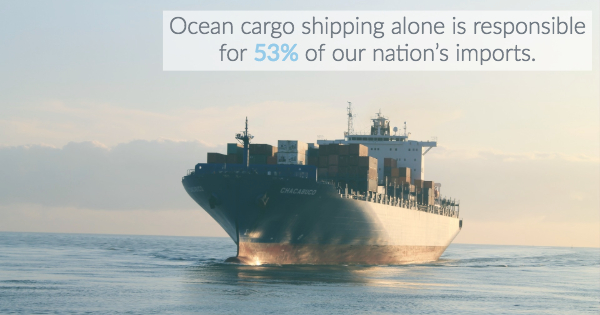Sulfur Stricture: International Shipping At Risk Due To Fuel Supply

International freight shipping makes the world go ’round. Ocean cargo shipping alone is responsible for 53% of our nation’s imports, and 38% of its exports, making it absolutely vital in our trade market. Unfortunately, a huge change is about to go into effect that may disrupt international shipping in a very big way.
Ocean cargo vessels rely on heavy fuel oil, derived as a residue from crude oil distillation, to propel them from port to port; crude oil contains sulfur which is then released into the air through ship emissions. Sulfur oxides (SOx) cause respiratory symptoms and lung disease in humans, and can lead to acid rain which kills crops, forests, and contributes to the acidification of the oceans. The International Maritime Organization, of which most of the world belongs to, recently set a new limit on sulfur content in cargo ships in an attempt to reduce the amount of sulfur being released into the air.
Though the new regulation doesn’t go into effect until January 2020, a report from Wood Mackenzie, an energy research and consultancy firm, states that the world will not be manufacturing enough low-sulfur fuel to keep up with demands. It’s estimated that the shipping industry will need to replace up to 3 million barrels per day of marine fuel, yet the global supply of low-sulfur fuel will only increase to 1.4 million barrels per day by 2020 — less than half of what is required.
To balance out this potentially major problem, many shipping companies have been considering the addition of scrubbers — a technology that cleans dirty fuel aboard the ship — rather than swapping their fuel. So far, over 2,000 orders for scrubbers have been placed, and it is expected that over 10% of the world’s fleet will be outfitted with the cleaning tech by 2020.
Because international freight shipping is so important to countries the world over, Wood Mackenzie predicts that 85% of the global fleet will be in compliance with the new regulation by 2020, and full compliance will be achieved by 2025. Regardless of what happens, one thing is for sure: this new law is going to change the world.
